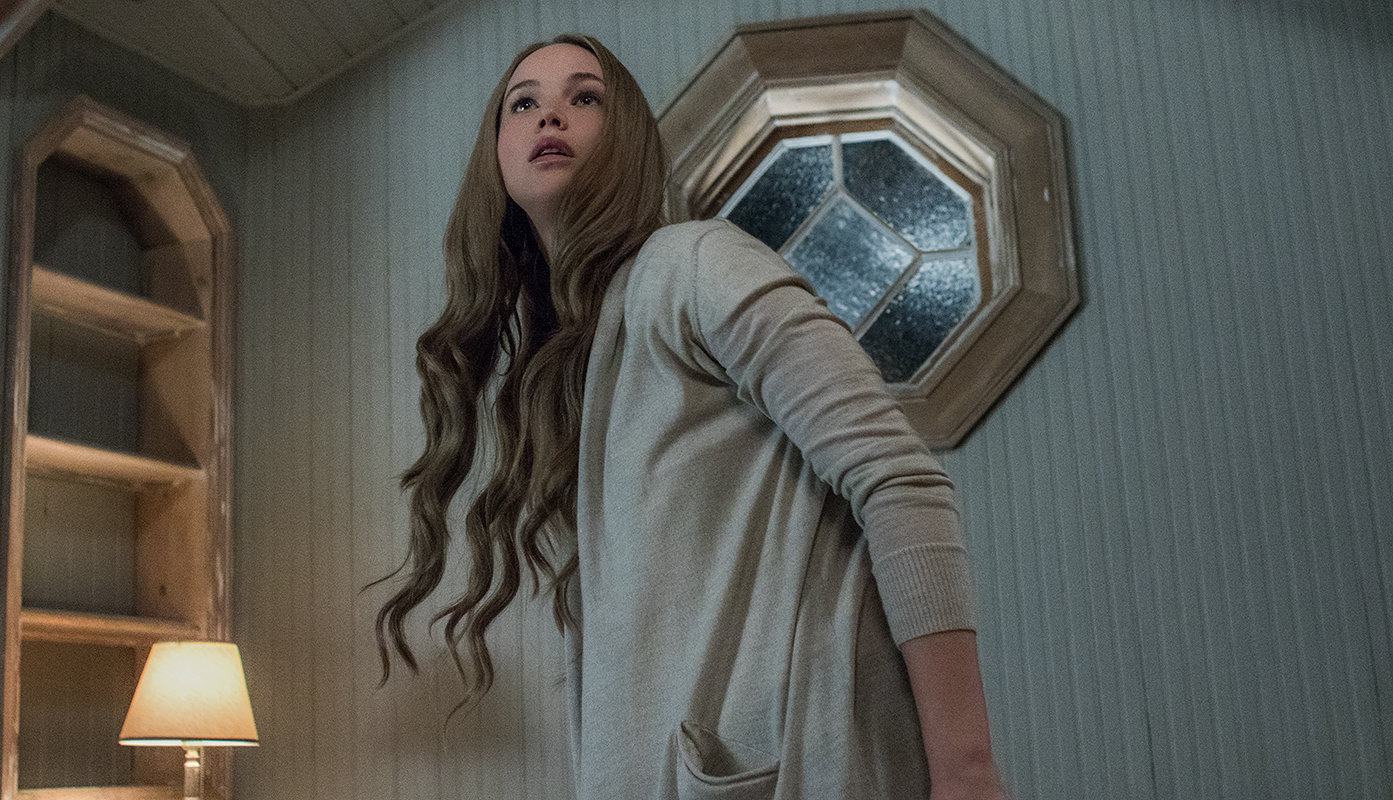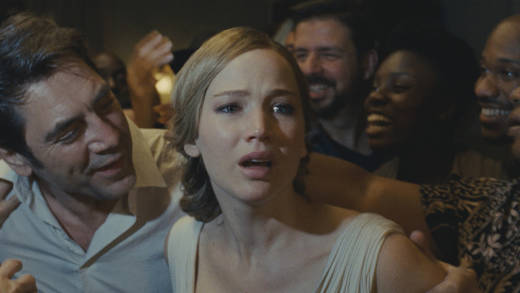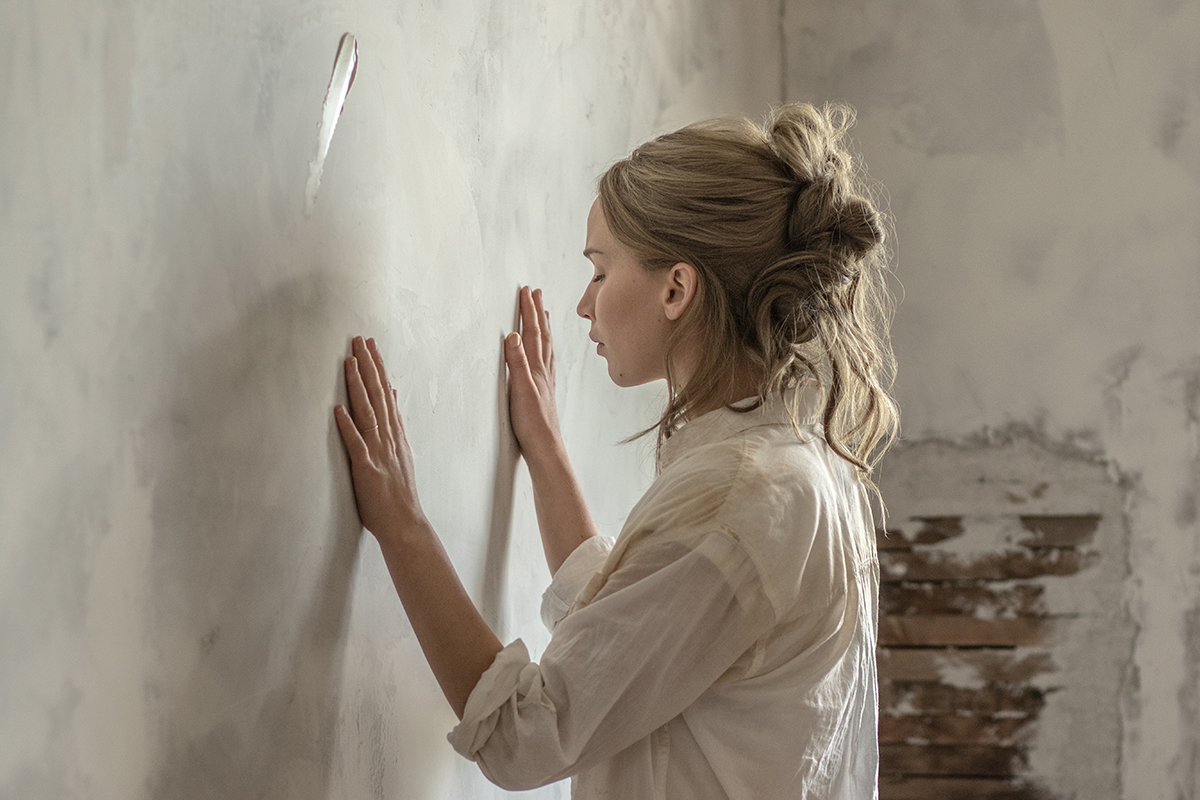The camera hovers behind Jennifer Lawrence’s shoulders throughout mother! Unlike an omniscient drone, Darren Aronofsky’s lens is entirely subjective, seeing and understanding only what her character does. It’s not simply capturing her movements down a staircase or into a poorly lit basement, the director stays near to create the illusion — and, more crucially, the feeling — that he’s revealing her disturbed consciousness to those of us watching.
As Mother, Lawrence’s every emotion registers on screen in each successively distressing close-up. Because this is an Aronofsky movie, joy isn’t one of those emotions.

Self-sacrifice is a recurring theme in his work — from The Fountain to The Wrestler to Black Swan. mother! isn’t an exception to the rule. We need only look at a promotional poster released earlier this year: Lawrence holds her own bleeding heart out to us, torn from the open wound in the center of her still-seeping chest.
Katniss Everdeen, the avenging huntress she played in The Hunger Games, has been erased. In her stead stands a sylph, a creature without guile, some ephemeral yet vulnerable spirit of nature.
Mother lives with Him (Javier Bardem) in an immense country house surrounded by nothing but trees. Bardem brings as much menace to this role as he did playing a remorseless killer in 2008’s No Country for Old Men. Him is a celebrated poet with writer’s block and a mean streak of narcissism. If it’s not yet clear, Aronofsky doesn’t provide any given names in the film. The supporting cast is identified with Biblical or possibly tarot card referents, such as Fool, Damsel, Zealot, Cupbearer and Idler. Like the other characters, Him isn’t just an artist — he represents every man, especially those with the basest, cruelest instincts when it comes to the (mis)treatment of women.

Him and Mother’s brief idyll is disturbed by Man (Ed Harris) and Woman (Michelle Pfeiffer), who arrive at the house by accident, believing it to be a bed and breakfast. When Him offers to let them stay without consulting Mother, it’s the first troubling sign that her wishes — for privacy — will be ignored. What follows is a series of violations of her domestic need for order. She wants her nest to remain inviolable. Instead, the unwanted house guests are careless with her things, disputing her sense of ownership and breaking the unwritten laws that transform a home into a sanctuary.




